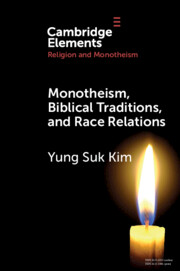Table of Contents1. Introduction
2. Theism and Race Relations in the Hebrew Bible
3. Monotheism and Race Relations in the New Testament
4. Contemporary Biblical Interpretation about Others, Race, and Ethnicity
5. Conclusion.
Race relations are an increasingly important topic – more now than ever before. Racism is not merely a lack of love or a deficiency of intellect, but it is a cancerous evil. On the one hand, there are myths about race or “others,” and on the other, there are prejudices and animosity against different races and cultures. People often categorize others, based on race or ethnicity, and rank them by their intellect or culture. Racism begins with a notion that human races are discernibly distinct or differentiated and that some races are superior to others. But this notion is an illusion because dividing lines between races are ambiguous or unscientific.1 Excellence in human capacity or virtue is widespread among different races or cultures. What constitutes excellence in humans or culture is a matter of debate. No single standard or factor can determine a person or culture’s excellence.Humans have existed for a long time and maintained diverse cultures, living in many regions of the world. So, naturally, their looks and culture have been differentiated, but these differences should not overthrow the singularity of humans who share more similarities than differences. Given the common humanity of homo sapiens, while we look different and think differently, we can seek the common causes of justice, peace, and prosperity. In the story of Genesis, God blesses humans and invites them to be fruitful and to multiply so that they may live fully in wider, different places.2 God’s design for humanity is diversity, not homogeneity. Against God’s wish, as the episode of the Tower of Babel shows (Gen 11:1–9), people did not scatter but gathered to make a big city, speaking one language. This episode sheds new light on how people must think about race or ethnicity. That is, race, ethnicity, or culture should not be a hiding place or a haven where people stay together among themselves only without engaging others. Race or culture matters not because it is the source of identity or pride but because it is an expression of diversity in God’s creation. Like a flowing stream or river, race or ethnicity must be the concept of flexibility that engages otherness and other people. In doing so, people in any culture or ethnicity may learn from others. Since no humans are perfect, they need to help one another, learning from others, while maintaining both the singularity of human character and the diversity of culture.
Monday, February 7, 2022
"Monotheism, Biblical Traditions, and Race Relations"
Excerpts from Yung Suk Kim, Monotheism, Biblical Traditions, and Race Relations (Cambridge University Press, 2022)

